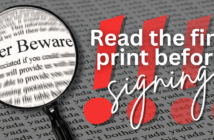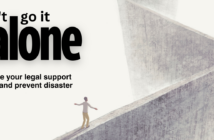Suggestions to set clear, concise and rational boundaries for employees online.
by ROBERT BRAUN
judging from the number of posts I read on Facebook, LinkedIn, Twitter and other sites, there are plenty of people who have nothing better to do than post pictures, stories, jokes and links so all of their friends – and everyone else who is interested – can see them. While this is generally a harmless pastime, it can create particular challenges for companies such as hotels, which are ultimately people-driven and very social places by nature.
So what’s the problem?
Every hotel employee is a representative of his or her hotel, and their actions reflect not just on them, but on the hotel they represent. Every time an employee tweets about work conditions, it reflects positively, or negatively, on the reputation of the hotel. If a desk clerk tweets praises about the service the hotel provides to guests, the hotel is a winner. However, if the same desk clerk comes home from her shift, logs on to Facebook and complains about co-workers, that’s a bad mark against the hotel. Worse yet, if an employee takes an embarrassing photo of a guest on his smartphone, and then tweets it to his followers, he’s created potential liability for his employer.
Employees can create havoc in other ways. Hotel companies cautiously – and rightfully – guard their operating policies and marketing practices. A hotel employee can easily leak information about upcoming marketing plans, personnel moves, and other events that could damage the hotel’s reputation or give its competitors an edge.
Even well-meaning acts by employees, including authorized employees, can backfire. TripAdvisor has become a go-to site for travelers and hotel professionals alike, and a highly recommended practice is for a hotel representative, often the general manager, to respond to every comment (particularly every negative comment) about the hotel that a TripAdvisor visitor might post. However, if the response is inaccurate, condescending or simply poorly written, it can do more harm than good.
Finally, employees are a key source of insecurity in a company’s data infrastructure. Internal employees are tied with hackers as a security concern, according to 59 percent of respondents to the sixth Global Information Security Workforce Study. Cases abound of employees who create security risks, from an employee of one firm who took photographs of data on a computer screen with his smartphone camera and sold it, to another employee who wrote down information and put it in her briefcase to sell.
What’s the answer?
A social-networking policy is one of a company’s most effective lines of defense against the risks presented by social media. Some of the basic precautions include:
- Prohibiting supervisors from evaluating, recommending or otherwise commenting on subordinates’ job performance on social sites such as LinkedIn;
- Cautioning employees that they may be subject to discipline up to and including discharge for harassing, intimidating or demeaning co-workers or customers on social-networking sites;
- Setting up a procedure that will define what personnel are authorized to access on a job candidate’s or an employee’s social networking site for employment purposes, and defining precisely the categories of information the employer will seek to obtain;
- Requiring employees whose affiliation with the company is evident to caveat their remarks on the Web as reflecting only his or her own views and not necessarily the views of the company or other employees;
- Reminding employees that they may not share confidential, proprietary or private information about the company, its employees or products;
- Stating that company trademarks may not be used on the Web without prior written permission from the company;
- Informing employees that they may not sell or promote products or services on the Web that would compete with company products or services; and
- Advising employees that they may consult with human resources with any questions about the company’s views with respect to the rules of the road for Web communications and the employer’s legitimate business interests.
None of these measures can provide complete protection. Contrary to the saying, rules weren’t meant to be broken, but they are often violated. At the same time, setting up clear, concise and rational boundaries for employees’ online and social networking activities is an important reminder of their duties and will deter some employees from inappropriate and damaging behavior.
Just as important, however, is a top-to-bottom commitment to information and data security in all its forms. This is not just a matter for line-employees; the entire chain of command, from the general manager to the housekeeping staff, must be part of the effort. ■
Robert Braun is a partner in the Los Angeles law firm of Jeffer Mangels Butler & Mitchell LLP where his practice, spanning more than 30 years, focuses on corporate, finance and securities law with an emphasis on emerging technologies, hospitality and business transactions. To learn more, visit www.hotellawyer.com. ©2016, Robert E. Braun.
4 recommendations for responding to negative reviews online
by HEATHER WILLIAMS
Responding to negative online reviews the wrong way can have lasting consequences on your business. In a 2015 TripAdvisor PhoCusWright study, 80 percent of respondents said seeing a hotel Management Response to an online review makes them believe the hotel cares more about its guests, and more than 60 percent of respondents said seeing a response generally makes them more likely to book (versus a comparable hotel that did not respond to travelers).1
In addition to taking the time to respond to guest reviews, it’s even more important that responses are crafted carefully. Reviews are for everyone to see, including prospective guests, so follow these recommendations when responding to negative reviews online.
- Respond quickly. This demonstrates that you take guest feedback seriously.
- Be personal. Don’t come across as a robot; be genuine in your response.
- Be polite and positive. Keep things positive and helpful, and thank the reviewer for their feedback.
- Address their issues directly. Mention specifics, offer any solutions or changes that you’ll implement.
1 Independent PhoCusWright study “Custom Survey Research Engagement,” May 2015. www.tripadvisor.com/TripAdvisorInsights/n2428/how-add-management-responses-tripadvisor-traveler-reviews#footnote1_j2233lz.




